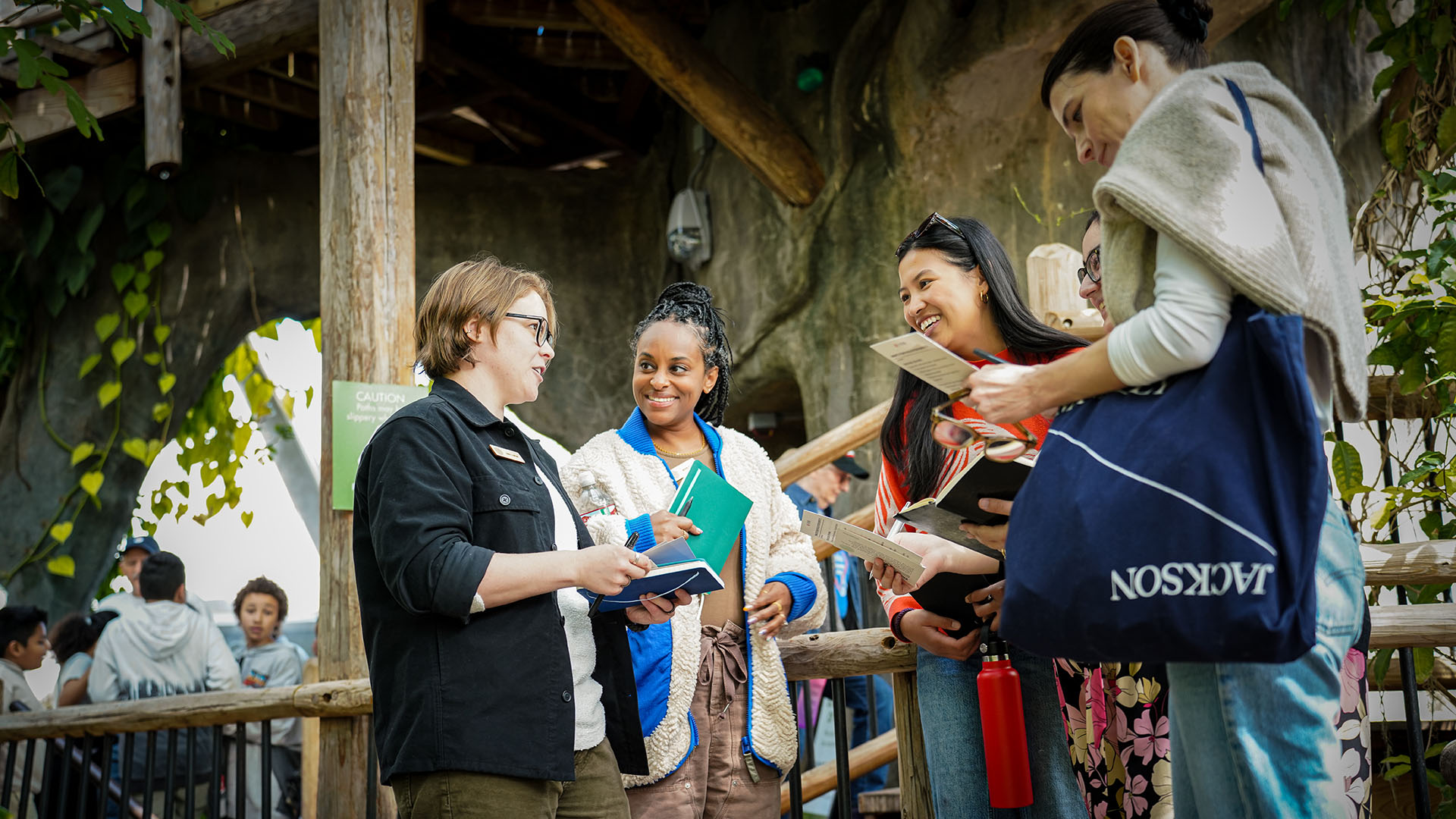A look back at Studio Session 2025
Many people don’t think of themselves as facilitators, even when it’s a huge part of their day-to-day. Jenna Slawson is a Design Lead at Workshop, a firm that designs collaboration spaces for climate action, and she was one of them. Last month, Jenna came to our two-day Studio Session: Design and Lead experiences that inspire, and she reimagined herself as a facilitator.
She was in good company. Our studio session brought together 22 leaders with different backgrounds, experiences, and goals from across the country who wanted to make headway on real projects. We flipped the script on hyper-traditional professional learning and instead fashioned an experience centered around peer-led activities, real-time practice, and a musical performance (yes, really!).
At the workshop, participants could drive their own learning and genuinely contribute to each other’s progress. As a result, participants not only built lasting skills but also began to see themselves and their work with greater clarity, confidence, and purpose.
We followed up with Jenna after the Studio Session to reflect on what made these mindset shifts possible in her work as a facilitator.
A memorable kickoff
Traditional workshops can feel formulaic and stiff. That’s why we decided to start with something a bit unexpected: a musical performance with live singers, without giving context for why the musicians were there.
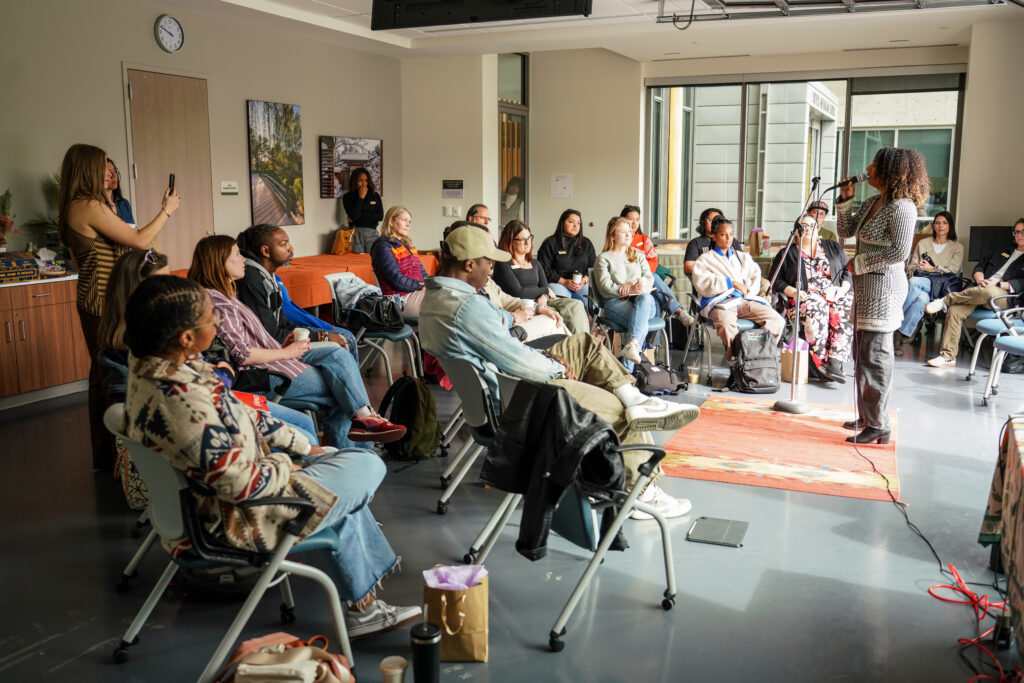
Jenna admitted that this opening was risky. “Why are we at a mini concert in this setting?” she wondered. But our discussion with the musicians that followed helped her draw connections between performance and facilitation. “It was so different and an impactful way to kick off,” she said. Jenna and her peers realized that preparation, confidence, and connecting with the crowd are the keys to success for both musicians and facilitators. Moreover, it set the tone for the experience: immersing participants in the unconventional fueled their creativity and willingness to take their own risks. “I’m trying to think of ways I can replicate that same experience in my work,” Jenna said.
Discovering her facilitator identity
At Workshop, Jenna supports the design and facilitation of convenings that address climate and sustainability issues and often leads conversations with writers and producers. Even so, she’s never thought of herself exactly as a facilitator. “I thought of my work more as collaboration and coworking with other creatives,” she said. To Jenna, facilitation has always conjured high-stakes gatherings – the kinds typically in board rooms with powerful execs sitting around a table in suits.
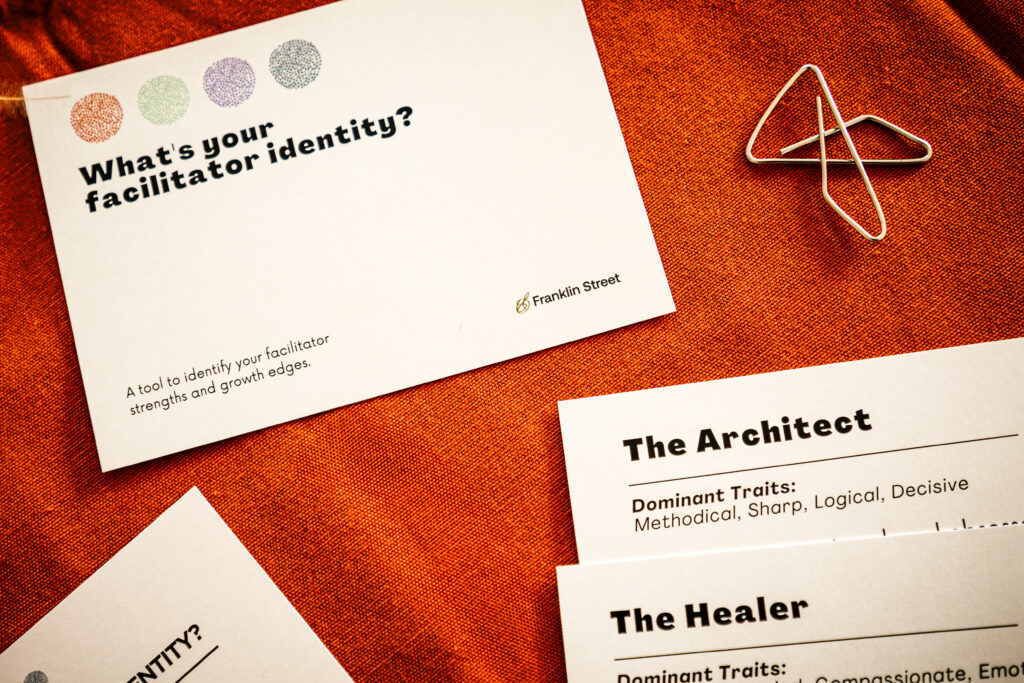
That changed after Jenna led a “teachback” — a short workshop-style session on her expertise as a visual storyteller. She started by declaring that, “Everyone can tell visual stories. If you can draw a box, a line, and a squiggle, you can do this.” She modeled her process and invited participants to see themselves as capable of using visualization to help others digest complex ideas. As Jenna witnessed her peers embracing a skill that minutes earlier had felt out of reach, she realized she was also beginning to see herself as a capable facilitator. “It’s not just for high-stakes moments,” she told us. “Facilitation is just another tool that anyone can use to help people move through complex processes”.
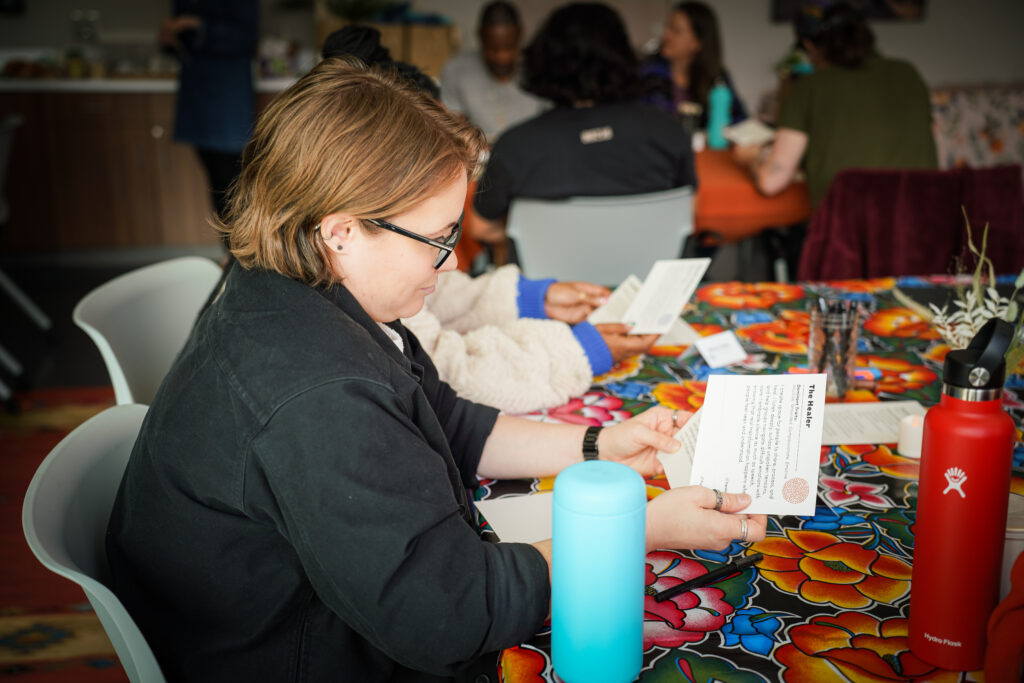
Peer-powered progress
Part of Jenna’s mindset shift came from workshopping a real project. She brought a project from their work to the session and workshopped it in a “crew” made up of folks from across sectors and geographies who shared similar learning goals. In one activity, participants quickly summarized their project aims. Then, a colleague had to mirror back what they heard. This simple exchange helped participants hear how their work actually sounded to others. What stood out? Were they conveying what they intended?
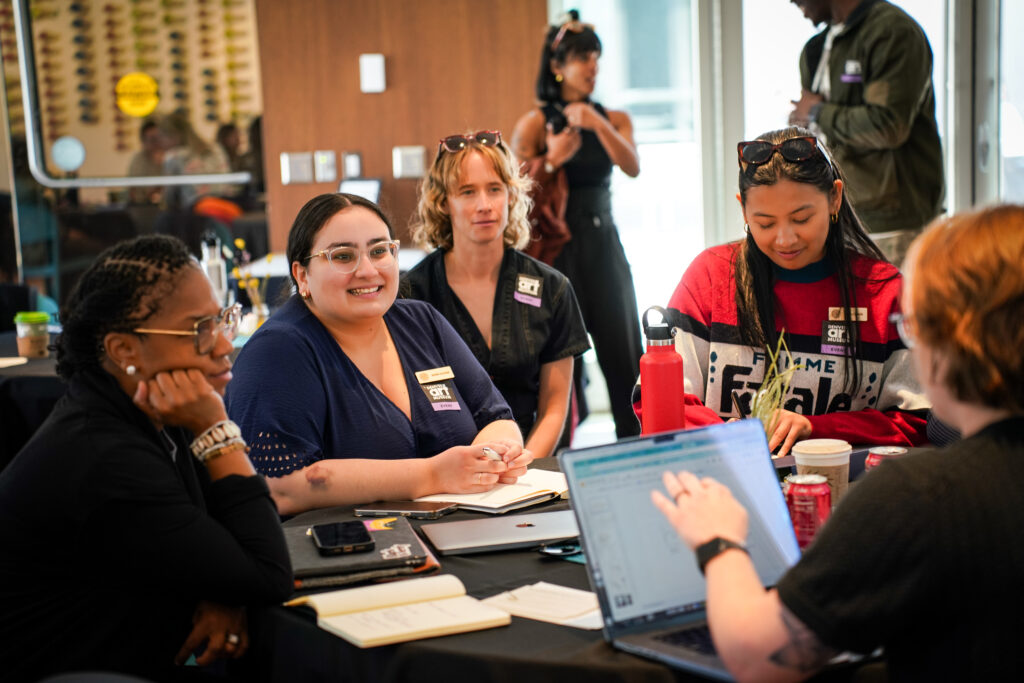
“I valued this structure because it felt non-hierarchical,” said Jenna. “Although my project doesn't start until September, we've kicked it off just last week, and I was already able to bring some of [my crew’s] ideas and thoughts to the table and share it with the team ahead of time.” Working on an actual project can suddenly make it easier to apply abstract learning to something immediate and meaningful, particularly when you have collaborators just as invested in getting real results.
When we hand the wheel to learners, professional growth stops being theoretical—it becomes personal, powerful, and lasting. As Jenna put it, “Everyone [at Studio Session] made me feel more confident that I have this superpower in facilitation.” The Studio Session didn’t just highlight what great facilitation looks like; it helped people see what’s already within them and how to use it. This isn’t a skill reserved for experts. It’s a muscle anyone can build—one that fuels connection, unlocks breakthroughs, and leaves people ready to lead in their own way.
